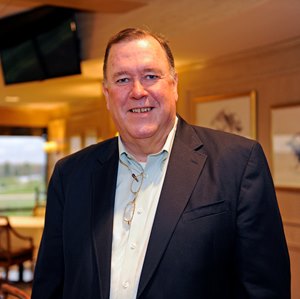ARCI Survey Calls for Central Guidance


Well more than half the respondents to an Association of Racing Commissioners International (ARCI) focus group study and survey—which included input from 3,000 people—support a central rule-making entity whose rules apply to all Thoroughbred racing participants.
Of course the debate has largely been on how such a central-rule making entity would be empowered and how it would enforce those rules. Still, a central rule-making entity would be a big shift for racing regulation. Currently horse racing rules are put in place and enforced by each racing state.
The ARCI is racing’s regulatory umbrella organization that works with state regulators to provide some uniformity in rules from state to state through its model rules program at varying levels of success. For instance, the National Uniform Medication Program, which aims to bring uniformity to equine medication policies and has model-rule backing, has only been fully adopted in 11 states.
In the ARCI survey, 83.6% of people who identified themselves as Thoroughbred Owners and Breeders Association members called a central-rule making entity a "preferred path," 71.9% who identified as Jockey Club members landed in the same category, and 54.5% of members of the National Horsemen’s Benevolent and Protective Association rated it the same. When members of these groups who "could live with" this option are added to the "preferred path" answers, the percentages go to 94.5%, 91.2%, and 85.6% respectively.
Citing a survey number that found that only about half of horsemen (51.5%) "could live with" or "prefer" a federal law to bring such a central entity into power, the ARCI said that divide could potentially block such an effort indefinitely. ARCI president Ed Martin said the results of the survey indicated to him that the best path forward is creation of a central rule-making authority with oversity by state racing commissions reorganized into a mutl-jurisdiction or national entity (an interstate compact).
"When pursuing legislation, either on the state or federal level, initiatives resulting from a general consensus tend to minimize potential opposition and have the greatest possibility of success," said ARCI president Ed Martin. "We believe this project has identified ways to build that consensus on a breed by breed basis. Only the industry can decide whether to do that or not."
Previous efforts to move forward with such an interstate compact gained little traction.
The Jockey Club has advocated a central rule-making entity that would be shaped by the United States Anti-Doping Agency and would be empowered through federal legislation. The Jockey Club has concerns about how the RCI survey was conducted but is looking forward to discussing how the industry can move forward Dec. 8 in Tucson.
"While the Jockey Club and others have shared concerns about the objectivity, design, wording and response sets in the RCI survey, we are looking forward to the meeting this Thursday in Tucson, where the RCI plans to discuss the results of its survey and its town hall meetings," said Jockey Club executive director Matt Iuliano. "The industry has long struggled to achieve national uniformity in drug testing and enforcement, with very limited success. The Jockey Club believes a system change in regulation is necessary for pari-mutuel horse racing to survive and thrive."
